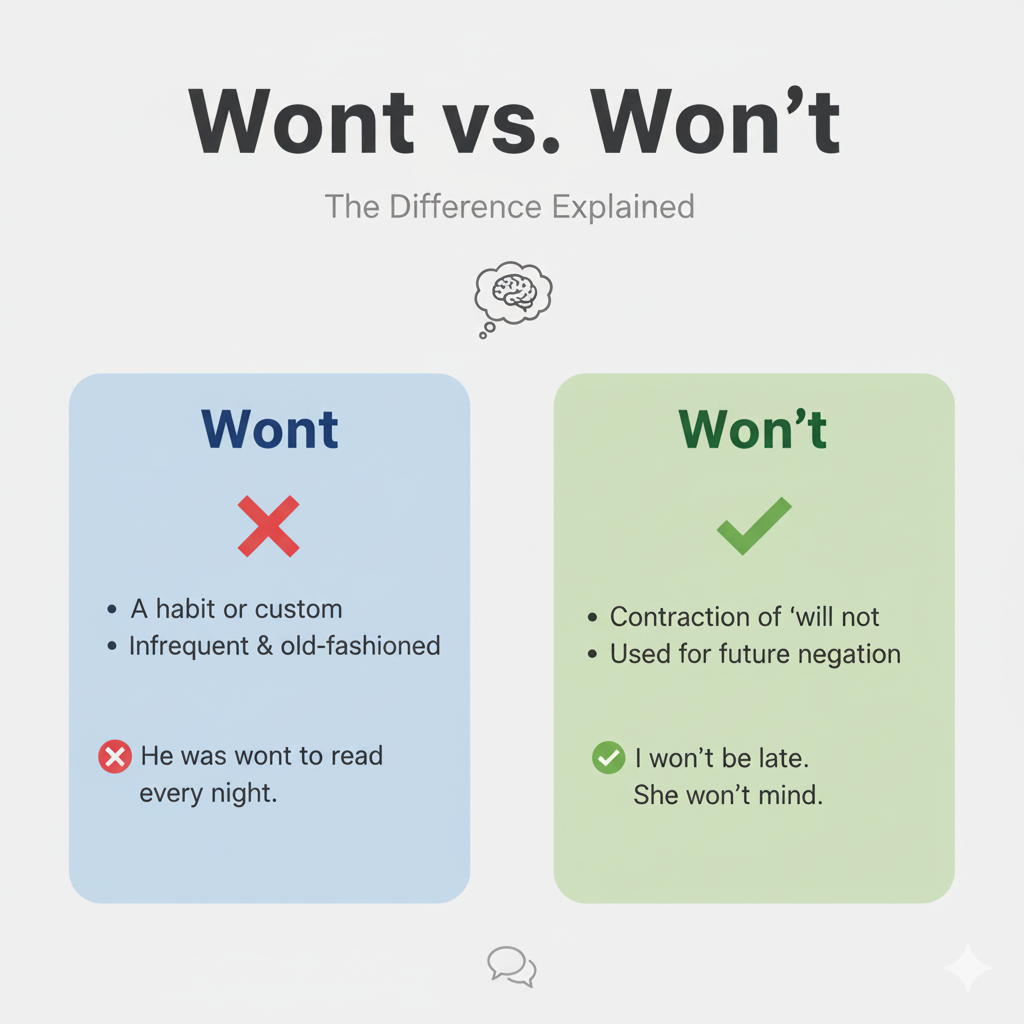Wont or Won’t—Learn the Right Word to Use

Have you seen “wont” and “won’t” and wondered if one of them is just a typo?
You’re not alone — they look similar but mean very different things.
Today, Midoo AI will help you clearly understand the difference so you’ll never mix them up again.
Won’t — Contraction of “Will Not”
Definition:
“Won’t” is a contraction (short form) of “will not.”
It’s used in everyday English to talk about future refusal or negative actions.
Examples:
- I won’t be late to the meeting.
- She won’t eat vegetables.
- They won’t come if it rains.
- He won’t talk to me anymore.
- We won’t forget your help.
Tip:
If you can expand it to “will not”, use won’t.
Wont — Old-Fashioned Word for “Habit”
Definition:
“Wont” is a formal and old-fashioned word meaning “habit” or “custom.”
It’s rare today and mostly found in literature or formal writing.
Examples:
- She rose early, as was her wont.
- He smiled, as he was wont to do.
- They took a walk after dinner, following their evening wont.
- The teacher scolded him, as she was wont to do when rules were broken.
- He spoke politely, as was his wont.
Tip:
If you can replace it with “habit,” use wont.
Quick Trick to Remember
- won’t = will not (modern and common)
- wont = habit (old-fashioned and rare)
Example sentence:
- He won’t eat dessert, as is his wont after dinner.
FAQ
Q: Is “wont” just a misspelling of “won’t”?
A: No. They are two different words with different meanings.
Q: Do people still use “wont” today?
A: Rarely. It’s mainly used in older literature or very formal writing.
Q: Can I use “won’t” in formal writing?
A: Yes, but in very formal writing you might use “will not” instead of “won’t.”
Final Tip from Midoo AI
“Won’t” is common and modern, while “wont” is rare and old-fashioned.
If you’re talking about the future and refusal → use won’t.
If you’re talking about someone’s habit (and want to sound formal/literary) → use wont.